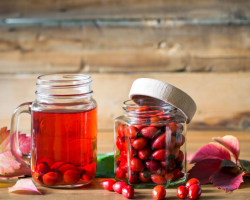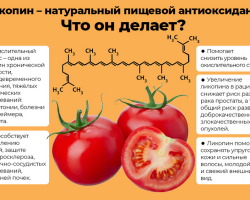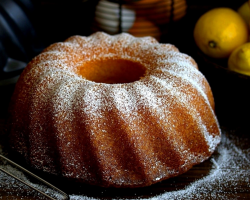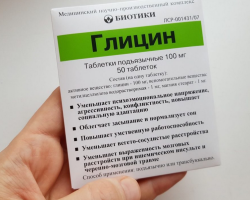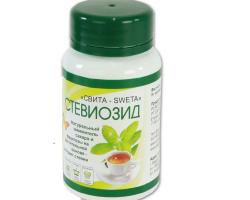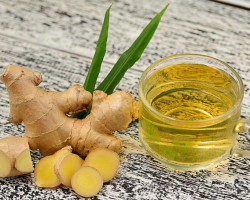There are many types of vegetable oils. The article describes the benefits and properties of sunflower, as well as many other similar products.
Content
- What you need to know about vegetable oil?
- Why is vegetable oil called lean?
- Sunflower oil: what is this?
- What does vegetable sunflower oil look like?
- Refined and unrefined oil: what is this, what's the difference?
- The similarity of sunflower and vegetable oils: is this the same thing?
- The difference between sunflower and vegetable oils: how differs?
- What are the varieties of natural fragrant vegetable oils: good, how to use?
- Beneficial properties of vegetable oil
- What is the harm of vegetable oil?
- Oil choice: what is the best for frying?
- Is it possible to fry in unrefined oil?
- Video: vegetable oils - benefits and harm, advice on use
- Video: This oil is categorically cannot be consumed!
- Video: vegetable oils interfere with weight loss and harm health! The harm of omega-6
On the shelves of modern stores there is a huge selection of oils made of different crops. They are used in the process of cooking. Many of them are not deprived of unique useful properties that are not characteristic of others.
Read on our website another article on the topic: "Is it possible to smear your face with essential oil?". You will find information about facial essential oils, with a table, reviews. You will also learn what the most effective essential facial oils in cosmetology.
This article describes the beneficial properties of different vegetable oils. You will also find information about how sunflower oil differs from vegetable, etc. Read further.
What you need to know about vegetable oil?

Vegetable oil is an oil that is extracted from raw materials of plant origin, such as, for example, corn, olives, soy, flax and, of course, sunflower seeds.
- It is used both for cooking and for industrial purposes.
- For receiving raises. Oils that can be used in food, grains and fruits are first crushed, heated, and then pressed the product by pressing.
- It is important to know that any oil squeezed out of seeds is oxidized in the light, which means it must be stored in a place protected from sunlight, at t ° — 5 to 20 degrees.
- Unrefined oil should be kept in the refrigerator.
The safety period of any such food "fat" approximately 2 yearsbut this is if it was stored correctly. But the open bottle should be used for a couple of months.
On the site iherb can buy natural and natural products with different vegetable oils in the composition.
Why is vegetable oil called lean?
Lenten is called food food. A similar food "fat" is allowed for eating even on some days of religious post. So it is called lean, and of course, also because its composition is a 100% plant origin.
If you turn to Christian traditions, then the oil made of seeds has a deep divine meaning. His adherents were rubbed and the body of Jesus Christ, the oil burned in church lamps, it is also used for baptism and participle.
Sunflower oil: what is this?
Sunflower oil is a product that stands in the kitchen, on the table in every house. It is produced from the seeds of the sunflower From the beginning 19th century. Sunflower oil is actively used in culinary recipes. It is quite calorie, its fat content is 100%. It is used for frying, baking and watering chopped vegetables. The unreasonable oil (without refinition) has a pleasant taste and smell characteristic of the fried sunflower seeds. And in the refinition method, the characteristic taste and aroma are practically absent.
What does vegetable sunflower oil look like?
In order not to make a mistake in choosing an excellent plant. Sunflower oils, some subtleties should be taken into account. What does it look like?
- The purified oil method is transparent, that is, it does not have sediment and other impurities.
- It most often does not have any smell.
- Unrefined oil may have a small precipitate and smell, and this oil is more thick.
The color of different vegetable oils varies from light to dark yellow. In sunflower, made of non-ardent seeds-a light yellow (bright straw) color made of fried seeds-a dark yellow shade.
Refined and unrefined oil: what is this, what's the difference?

Food oils are both refined and unrefined. They are refined with the aim of cleansing from by -products, but the process itself does not affect the acids available in fat. The only difference is how specifically the method of free fatty acids, giving a bitter taste, occurs.
- Unpeeled oil passes only the mechanical stage of cleansing and filtration after spin, which is why it is most useful, because all the necessary trace elements are saved in it to the maximum.
- But refined oil-after several different stages of cleaning, excluding filtration, due to which its chemical composition changes, all kinds of impurities and smells are removed.
More useful plants. Oil is considered unrefined. It has many different vitamins and trace elements.
Read on our website another article on the topic: "How to fry without butter in a pan meat, eggs, pancakes?". You will find out whether it is possible to fry without oil, and how to replace vegetable oil when frying.
The similarity of sunflower and vegetable oils: is this the same thing?
To the category of plants. The oils belong to all types of "fats" produced from green plants and other crops. origin. Thanks to this oil, the sunflower is no exception, because it is squeezed from the seeds of sunflower. Both “fat” are refined and unrefined. The methods of their production are also similar.
The difference between sunflower and vegetable oils: how differs?
Their difference is what is growing. Oil is made from olives, peanuts, coconut or other crops, and sunflower “fat” only from sunflower seeds. In different types of industry, both products from sunflower (confectionery, etc.) and others are used. Oils are used in cosmetology, oil and fat production, as well as in paint and varnishes, etc.
What are the varieties of natural fragrant vegetable oils: good, how to use?
There are several varieties of natural fragrants. "Fat". They have great benefits, since most can be eaten, as well as to lubricate hair, skin, etc. There are many different types. Here is a list of some of them:
- Amaranth oil
- Rapse
- Apricot
- Eucalyptus oil
- The essential oil of wormwood
- Rosemary oil
- Anise
- Artichoke oil
- Saflore oil
- Palm oil
- Milk thistle oil
- Grapefruit oil
- Chamomile oil
- Cannabis oil
- Sandal oil
- Lavender oil
- Timyan oil
- Fenger oil
- Rice oil
- Buckwheat
- Rosemary oil
- Cinnamon oil
- Burdock
- Ceremonial
These are the types of such a product that are little known to most people. But there are popular varieties that many of us use in our kitchen or to care for the body, etc. Here's a list:

- This species grows. The oils are produced from olive berries.
- It is quite common in modern cooking.
- This oil is appreciated by the highest indicators for the content of Oleinova K-you, which helps to reduce the indicators of poor “fat” in biological fluids.
- This variety has a special harsh taste and light olive aroma.
- There is an olive. Oil in a chilled state is useful for body systems, especially for ladies as a prevention against breast cancer.
- It is squeezed out either from raw or fried sesame seeds.
- An unrefined product made of fried seeds of dark brown color, but from raw, on the contrary, light yellow.
- Both has a sweet-sound taste and smell.
- This oil is not suitable for frying and it is not recommended to be placed in hot dishes, since after heating it no longer has so much benefit.
- In sesame oil in abundance of zinc and calcium.
- This therapeutic product is used for preventive purposes of cardiovascular pathologies, and it is also common in folk medicine.
- This product is slightly bitter taste .
- Its distinctive feature is that it burns out quite quickly.
- If the oil is fresh, then the bitter taste is barely felt, but how it stands a little, it begins to bitter.
- Such unpeeled oil is easy to save, but for no more than two weeks.
- This product perfectly affects all the gastrointestinal organs.
- Therefore, this is a wonderful variation of refueling for chopped vegetables, and it is even drunk in its pure form.
- It is also used for cosmetic purposes.
- He is also called "a first -aid kit in miniature."
- It has an original bright taste.
- Unpeeled pumpkin oil of a dark green shade.
- When heated, the product loses most of the beneficial qualities, therefore it is mainly used for watering chopped vegetables before serving.
- Of the useful qualities, they distinguish: prevention of gallstone disease, anti -inflammatory effects, strengthening immunity, acceleration of cell healing in the body and many others.
Mustard oil:
- It is extracted from mustard seeds, so it has a mustard taste.
- Mustard oil is spicy and its taste is special, as they say "for an amateur."
- The composition of this variety of “fat” has choline, which is of the main importance for brain cells and nerve roots.
- In cedar nut oil, the number is off vitamin ehaving a general strengthening effect.
- Helps to cope with chronic fatigue, even stimulates the mind and increases human intelligence.
- In modern medicine, it is used in the treatment of diseases such as pancreatitis, gastritis, ulcer, etc.
- This list is quite huge, not in vain cedar oil was called our ancestors "Oil from a hundred diseases".
- In cooking, it is ideal for watering chopped vegetables, as it has a special taste.

Corn oil:
- It is not carcinogenic and does not “burn” when frying, so it is very well suitable for cooking dishes in a pan.
- It is also used at children's food and diets. products.
- Since corn oil is rich in vitamin E, then it helps to strengthen the human immune system and increases the body's resistance to infections, bacteria and inflammatory pathologies.
Hemp oil:
- It has a resemblance to linseed oil, but with an interesting walnut flavor.
- One of the few "fats" that contains Omega-3.
Red -legged oil:
- It immediately comes to mind that this product is obtained from mushrooms of red -haireds, but this is not so.
- In fact, it is squeezed out of false flax, the Cross -Bulge family.
- It has an island taste.
- Ringer is rich vitamin E, D and magnesium.
- Walnut is a nutritious product, so the olive from this fetus is very useful.
- This product is considered quite rare and sophisticated, so its price is quite high.
- It is a bright amber shade with a nutty smell.
- The peculiarity of this product is that in a chilled form it is solid, and with t ° over 35 degrees He begins to liquefy.
- It has a characteristic coconut aroma and taste.
- When heated, unrefined coconut oil does not contain carcinogens, therefore it is a great option for frying.
- Only you need to keep in mind that the dish will have a coconut flavor.
Cotton oil:
- Squeeze from the seeds of cotton.
- It is known in Central Asia.
- Only a cleaned product enters stores, since the unpeeled compound has a poisonous connection.
- Use peanut oil - A suitable option for vegetarians.
- They squeeze it out of the fruits of an earthen nut or as we are used to calling, peanuts.
- Such an unpeeled “fat” of red-brown with a pronounced peanut flavor.
- It is better not to use it for frying, since when heated it becomes toxic.
- A refined product has a light yellow color and is not good for roasting.
- Like other oils, it also found application in medicine.
- It perfectly affects the nerve roots, reduces the risk of blood clots and heals the body.

- A product that has a natural aroma and taste.
- In order to prevent a number of pathologies, it is poured in minimum portions into salads in combination with other similar “fats”.
- It is squeezed from the waste of the wine industry, so this variety of oil has gained great popularity in France and Italy.
- A similar product has a soft aroma and a sweetish taste.
- Great for watering chopped vegetables and greens, and for roasting.
Often nutritionists prescribe different plants in diet therapy. oils. For example, many useful trace elements in linen, sesame, sea buckthorn and other types of “fats”. It is enough to use daily from 0.5 to 1 teaspoon product per day, and the body will receive everything necessary for normal functioning.
Beneficial properties of vegetable oil
The composition is growing. Oils enter fatty acids, vitamins and phytosterins. Useful properties of vegetable oil:
- Fatty acid participate in the process of synthesis of the cell membrane.
- Phytosterins They have healing properties, for example, they lower the indicators of poor cholesterol in human biological fluids.
- But vitaminsThere are a lot of oil in oil, they improve the skin, have antioxidant properties, that is, they neutralize and stop the oxidative processes of free radicals in the human body, which reduces the risk of cardiac and vascular pathologies.
The use of such “fat” has a good effect on the gastrointestinal tract, and also increases the immune response and allows you to deal with premature aging. Therefore, it must certainly be in the menu of each person at any age.
What is the harm of vegetable oil?
Vegetable oil is an important product for the body. There is practically no harm from him. However, one must understand that everything should have a measure and you need to use it in reasonable quantities. Excessive use is quite capable of leading to a choleretic effect, but this does not mean that it is worth it to refuse it right away, you just need to reduce the amount consumed.
Oil choice: what is the best for frying?

The best option for frying is refined oil, but also like any other oil, it can only be used once.
Important: It is forbidden to again fry on the same portion!
For this purpose, the best is oil squeezed from sunflower seeds. But here you need to observe the measure - no more than one table. tablespoons in a pan. It contains Omega-6, which is fraught with a chronic inflammatory process in the body. A good alternative will be coconut and peanut oil. If you use olive. oil, then you need to fry with low t °.
Is it possible to fry in unrefined oil?
Many believe that any plant is suitable for frying. oil. But in fact, this is not so, therefore, choosing “fat” for frying must be taken into account several nuances.
- Unrefined - the most useful “fat”, but not in this case.
- In the process of frying, it begins to emit carcinogenic substances: ketons, acrolein and acrylamide. Free radicals are also no exception.
- Therefore, the use of unrefined frying oil can lead to a number of diseases, such as: oncology, obesity, gallstone disease And to many others.
The conclusion is this: Frying in such oil, be it at least olive, even linen, categorically impossible. Such oil should be poured into a salad, not a pan.
Due to the enormous variety of vegetable oils, everyone will certainly choose something for himself, something that is suitable for him.
Video: vegetable oils - benefits and harm, advice on use
Video: This oil is categorically cannot be consumed!
Video: vegetable oils interfere with weight loss and harm health! The harm of omega-6
Read on the topic:
- What is the useful oil for the skin of the face, hands, head and body?
- Coconut oil and palm - this is the same thing: how is it?
- The benefits, composition and therapeutic properties of lemon essential oil
- Olive oil: benefits and harm, contraindications, reviews
- Which oil is more useful olive or linen, or sunflower?


